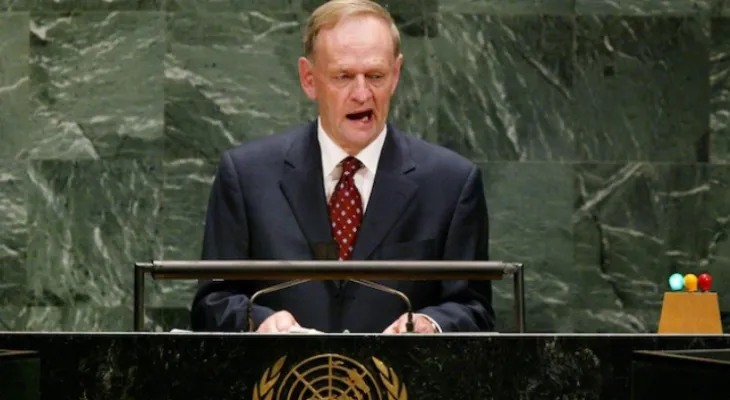Search here
Newspaper
Search here

Arab Canada News
News

Published: January 15, 2024
Canada led efforts to narrow the scope of the United Nations Declaration on the Rights of Indigenous Peoples (UNDRIP). Australian government documents showed that Ottawa worked secretly with Australia to produce a watered-down alternative text in the early 2000s.
The development of a more lenient text towards governments was an idea of Jean Chrétien's Liberal administration at the time. Australia supported it as part of tactics against Indigenous leaders who refused to amend the original 1993 declaration text.
Australia decided to negotiate with Canada on a comprehensive and strong alternative text to confront the current proposal and prevent it from obtaining the status of customary international law, according to documents written by two Australian ministers in a document issued in May 2003 that has now become public.
Canada saw Australia as its promising partner in drafting a new text, and Ottawa was ready to allocate significant resources to this effort, as stated in another Australian document from 2002.
These findings also come from documents released by the Australian National Archives, which publish such memos intended for government members after 20 years. The Guardian was the first to report this information. In Canada, such archives are also accessible after 20 years, but in this case, they are not public.
Archival documents indicated that the two Commonwealth countries realized that their dealings beyond the official United Nations negotiation tables were a sensitive issue.
For at least a year from June 2002, neither government publicly announced the discussions.
The fact that we are discussing an alternative text with Canada has not yet been announced, as we read in a document signed by ministers in 2003.
Our approach was to discuss this alternative text only with key countries that seemed to share the same views and concerns as us.
"I am not surprised," said Kenneth Deer, a man from the Kanien’kehá:ka of Kanata:ke; he feels disappointed but not surprised, and he was involved in the creation of the United Nations Declaration on the Rights of Indigenous Peoples between 1987 and 2007.
"Canada always tried to appear friendly, but it was stabbing us behind the scenes," he denounced.
Records showed that Australia was increasingly isolated in its opposition to the Indigenous peoples' right to self-determination in the early 2000s, fearing that this right would mean that Indigenous peoples might secede. The Australian government wanted to abolish this term entirely and replace it with self-administration.
Canada, for its part, accepted the term self-determination, but only if accompanied by negotiations and an agreement with the government.
Nevertheless, the two countries agreed to remove references to disarmament, land restitution, armed conflicts, and cultural genocide. Both also wanted to add language referring to the territorial and political integrity of sovereign states, which eventually led to mixed results in the declaration that was ultimately adopted at the United Nations.
For example, a line affirming the territorial and political integrity of states was found in the final text. On the other hand, another article prohibiting the kidnapping of Indigenous peoples or their forced withdrawal from their lands remained unchanged. Ottawa and Canberra wanted to amend this clause, because for Australia, there are circumstances where it is legitimate to remove someone from their lands (for example, for reasons related to state protection).
Comments